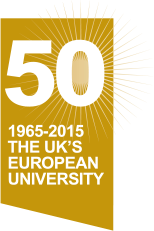

Imagining Autism
School of Arts: Professor Nicola Shaughnessy, Dr Melissa Trimingham, Professor Julie Beadle-Brown, Dr David Wilkinson

Research at Kent is helping children with autism to communicate more effectively. Working with children aged 7 to 12, the study aimed to encourage language development, empathy and imagination. It did so by exposing the children to a series of imaginary environments and providing drama and play-based activities (puppetry, physical performance techniques and responsive digital technologies).
During the Imagining Autism project, parents offered many compelling testimonies:
‘He has gained in his imagination; he is talking more, commenting on everything.’; ‘He is identifying emotions, and naming them.’; ‘He gave me a kiss and a cuddle, which is rare.’; ‘He is reasoning things out – we had a conversation for 15 minutes for the first time.’
Many professionals were also surprised by the project’s results. Education and health settings often focus their efforts on providing children with specific skills such as counting or dressing. In contrast, the project environments were highly sensory and child-centred, giving the children creative autonomy as ‘co-producers’ in the activities. And, as a result, the children displayed significant changes in behaviour.
The National Autistic Society is now training staff in the Imagining Autism approach and the work is being tested in health settings, including diagnostic services within the National Health Service.
Profiles of the people who make Kent the university it is today